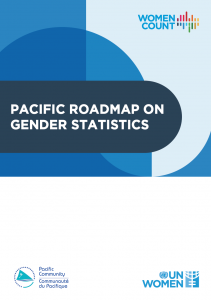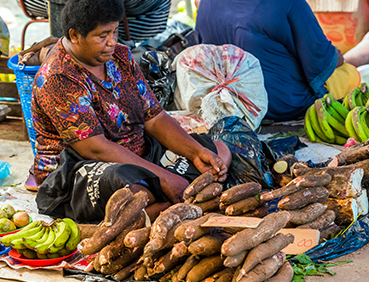Pacific Gender Statistics Coordination Group
Coordination matters!
The Equality Insights team participated in the first meeting of the Pacific Gender Statistics Coordination Group on 12 May 2021. The Group brings together government statisticians, gender statisticians and gender data users from across the Pacific region, chaired by the Pacific Community (SPC) and UN Women. Two civil society organisations were involved, IWDA and the Fiji Women’s Rights Movement.
Following finalisation of the Pacific Roadmap on Gender Statistics in 2020, the Group has been established to coordinate gender statistics activities across the Pacific and identify common solutions for the production and use of gender data. The initiative reflects the importance of strengthening both the availability of and access to gender statistics in the region, to advance gender equality. The Australian Government through the Department of Foreign Affairs and Trade (DFAT) is resourcing the new mechanism, which will meet quarterly.
Cover of Pacific Roadmap on Gender Statistics
The inaugural meeting of the coordination focused on sharing updates on progress and challenges for the production and use of gender statistics, and beginning discussions about key areas where coordination on gender statistics is essential, and where learning can be leveraged. Special Adviser with the Equality Insights team, Joanne Crawford, briefed the meeting on work underway to adapt the Equality Insights survey for remote administration, to increase the availability of individual-level, gender-sensitive data to support more gender-responsive recovery. Developments since the last Roadmap meeting include performance review of every item and indicator based on the five studies conducted under the program’s previous phase in order to develop a shorter variant of the survey also called Equality Insights. This shorter variant is an approx. 40 per cent reduction in the total question pool for the Individual Deprivation Measure (IDM) survey used in the Solomon Islands in 2020. Work is also underway to develop a shorter variant for remote surveying to meet the challenges of data collection in the COVID-era.
The 5 strategic areas of the Roadmap and the objective to which they contribute
Moving beyond gender-insensitive measurement
Contributing to regional frameworks and mechanisms is part of the process of sharing knowledge and experience with individual-level, gender-sensitive measurement of multidimensional poverty and inequality. Equality Insights as a measurement innovation will have most impact when it is in regular use. It is not possible to measure multidimensional poverty at the individual level without a robust tool, but developing that tool is only the first step towards building understanding of why this matters for illuminating the nature and extent of poverty and inequality and who experiences it.
IWDA Research Fellow Dr Kylie Fisk participated in regional workshops to conceptualise and develop the Pacific Roadmap, in Fiji in February 2019 and Vanuatu in September 2019. The Individual Deprivation Measure (IDM), which IWDA is taking forward as Equality Insights, is named in the Roadmap as a ‘specialised survey that addresses gender data gaps’, alongside other established multi-topic surveys. Implementing a survey using the measure is a country- and regional-level indicator of success.
The Equality Insights team looks forward to regular regional engagement through this mechanism, to coordinate with and support regional gender data priorities, and to build awareness of the relevance of individual-level, gender-sensitive, multidimensional measurement of poverty and inequality in implementing the Roadmap and realising the Sustainable Development Goals, particularly SDGs, 1, 5 and 10. Intersectional gender data is a foundation for achieving gender equality and securing a sustainable future. Our lives are multidimensional and intersectional. We need data that reflects this.




Comments